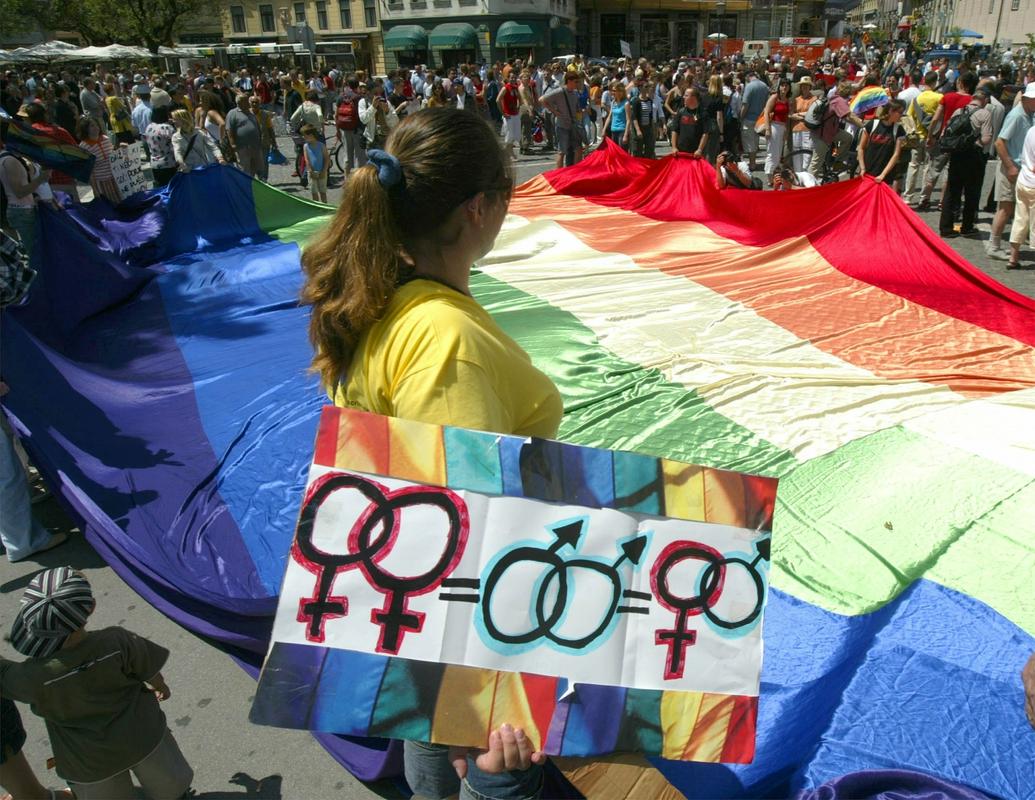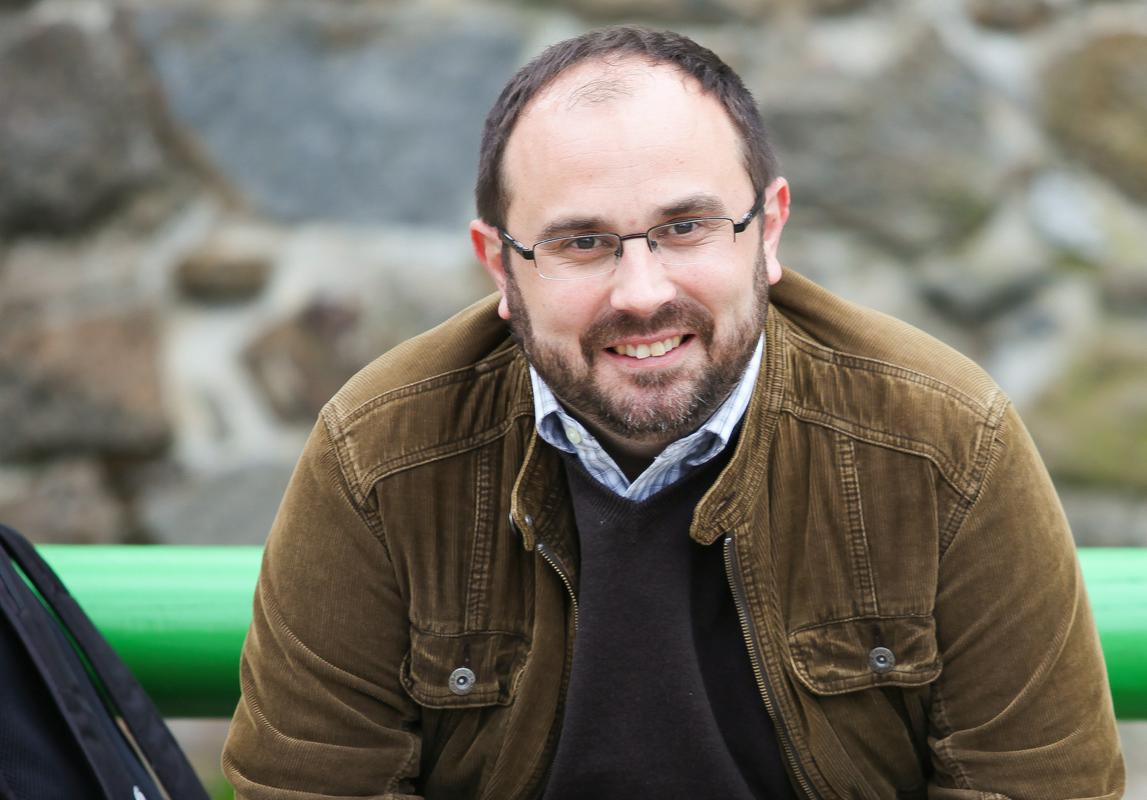
Here we waver endlessly over a decision. The left political option is full of quasi-leftists who were the reason the original version of the family code was overthrown. They are using the loud and homophobic right-wingers as a disguise – they lay the blame on them for blocking the passing of the law, but in fact many of the leftists should at first get rid of their own homophobia.

The problem is that the individuals usually fail to report discrimination, as they don't like to expose themselves. Quite too often it happens that the problem is found with the victim, and not with the person performing discrimination.
"
Has the time come for the disclosure of the gay politics, what are the expectations of the LGBT group before the state assembly elections, will the new government write anew the family code, and what is the position of the Slovenian gays and lesbians compared to their position in Europe? MMC posed these questions to the lecturer at the Faculty of Arts and the researcher at the Peace Institute, the sociologist Roman Kuhar, before the Saturday concluding events of the Pride Week.
Which is, in your opinion, the most bizarre thing qualifying the position of gays and lesbians in Slovenia?
The most bizarre case I've heard of is the birth certificate of a child from a homosexual family, where in the column »Mother« the name of the child's biological mother is stated, and the name of her partner, i.e. the child's social mother, is entered in the »Father« column. Obviously, in Slovenia that is possible: we are gradually changing the legislation, but the forms seems to have been printed in excessive quantity in the eighties of the previous century, and thus are still being used.
Which are the most serious problems the homosexually oriented people in Slovenia have to face?
From the legal perspective the answer is quite simple: inadequate or non-existent legislation regulating partner and family relations causes a number of problems, which would have been solved had the family code been passed. A special chapter are »trans persons«, one of the crucial problems being the fact that in Slovenia we don't differentiate between the legal and the medical change of sex, and at the same time it is not clearly defined at which point of the sex change a person is entitled to change the documents. The decision is actually left to the officials at the administrative offices. All these problems arise from the legislation.
What about the wider spread problems within the society?
The other problems comprise social exclusion which actually stems from our culture. Loudly spoken and forthright forms of homophobia are rarely encountered in our country, but homophobia is lurking beneath our alleged tolerance, close to the surface, and can be easily awakened by populist statements like those we had to listen to in the debates on family code. Political correctness is of no use if the respect for differences between people is not an integral part of our culture.
The Minister of Work of the departing government announced the change of the family code for the autumn, obviously by the new government. What changes should be made in the existing family code? Has anybody asked for your proposals, or for your opinion?
I believe no more meetings are required to discuss this topic. In 2009 an excellent law was written, and it should be passed. Three years of public discussions, and more than 80 hours of debates at the central committee of the state assembly is enough. Unfortunately, what is lacking is the political will.
What are the differences in the position of the homosexually oriented people in Slovenia when comparing the situation five years ago, and at the present moment? What has improved, and what worsened?
Although the discussion of the family code hasn't brought any legal changes, it contributed to an important shift on the social level. Today we are mostly dealing with symbolic questions: should the union between two homosexual persons be called »marriage« or by another name, while there is the common consent that both homosexual and heterosexual couples should have the same rights. We are still dealing with homosexual families, but it is becoming more and more obvious that a child needs a safe, stable and loving environment for his/her development, with the emphasize on the content and not on form of the family.
What is the situation of the Slovenian gays and lesbians compared to the homosexually oriented in other countries?
Due to non-acceptance of the law we are gradually sinking to the bottom of Europe. This year's Rainbow map Mavrični zemljevid of the ILGA Europe international organisation has shown that in the field of legal protection of the LGBT group we fell behind Croatia, Montenegro, and Albania.
Where do gays and lesbians meet with most pressure, mobbing, discrimination? In education, army, state administration, private sector? Are there any sanctions for discrimination?
It can happen in all the mentioned spheres, although discrimination based on sexual orientation is forbidden. The problem is that the individuals usually fail to report discrimination, as they don't like to expose themselves. Quite too often it happens that the problem is found with the victim, and not with the person performing discrimination.
We are facing elections; today is the first day of the pre-election campaign. Do any of the political parties address the members of the homosexual community?
Some do, but one can't live on pre-election promises. We don't yet have a Zapatero in Slovenia – a person who would in a pre-election campaign promise, and after the elections also regulate the position of the homosexual communities. Here we waver endlessly over a decision. The left political option is full of quasi-leftists who were the reason the original version of the family code was overthrown. They are using the loud and homophobic right-wingers as a disguise – they lay the blame on them for blocking the passing of the law, but in fact many of the left-wingers should at first get rid of their own homophobia.
Is it the time for disclosure of the homosexual politicians or candidates of the political parties for the national assembly elections? Would it have a positive impact on the position of the gay and lesbian community?
What do you mean? Most certainly there are no gays or lesbians among the media personalities, or in economy, or in politics – make that the world of the prominent persons in general! These are only your ugly insinuations! (laughter)
Are you alluding to the performance nastop of the Iranian president Ahmadinejad at the United Nations in which he claimed there were no gays in Iran?
Exactly.
Here we waver endlessly over a decision. The left political option is full of quasi-leftists who were the reason the original version of the family code was overthrown. They are using the loud and homophobic right-wingers as a disguise – they lay the blame on them for blocking the passing of the law, but in fact many of the leftists should at first get rid of their own homophobia.
The problem is that the individuals usually fail to report discrimination, as they don't like to expose themselves. Quite too often it happens that the problem is found with the victim, and not with the person performing discrimination.

































































